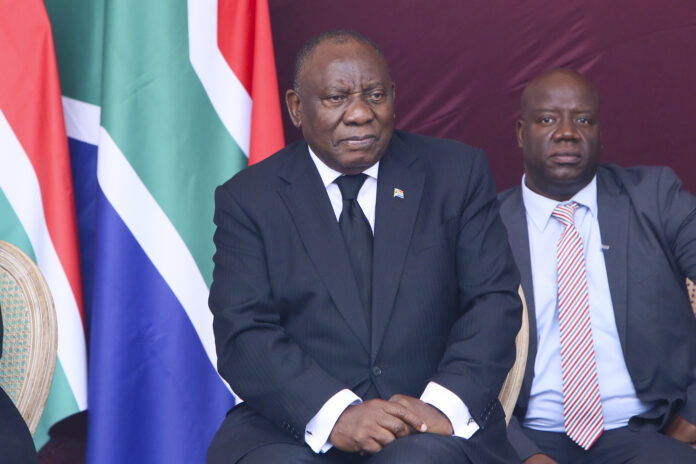In 2025, if Joe Slovo were to rise from the annals of history and face the ANC in its current state, one can almost hear his indomitable spirit reverberating through the corridors of power, challenging his comrades with both praise and piercing critique.
Slovo, the embodiment of strategic brilliance and revolutionary fervour, would look at the ANC, both proud and exasperated, ready to confront what he might perceive as a wavering in their revolutionary resolve.
First, let’s not mince words. Slovo would undoubtedly commend the ANC for its monumental achievements since the fall of apartheid.
He would acknowledge that democracy in South Africa, something he helped architect, is robust and alive.
Millions of South Africans have access to basic needs — housing, electricity, and water — that were long denied under apartheid.
These are no small feats, and Slovo would certainly tip his hat to the progress made in education, healthcare, and social support systems that have dramatically improved the lives of black people.
However, Slovo was never one to rest on his laurels, and he’d likely be the first to tell the ANC that its mission remains unfinished.
The stark inequalities that still grip South Africa would spur him into a familiar cadence of confrontation. Poverty, unemployment, and the spectre of crime and violence stain the nation’s progress.
ANC must reflect on its failures
Slovo would not shy away from pointing out that the very social and economic structures of apartheid, which he so fervently opposed, are still haunting the country.
In his typically incisive manner Slovo would challenge the ANC to reflect on its failures, particularly its struggles with corruption.
This, to him, would be an unforgivable scar on the face of a movement meant to champion the interests of the people.
The diversion of resources away from those in dire need would stir his revolutionary ire.
His belief in universal justice would compel him to demand accountability and honesty, urging the ANC to root out corruption with the same fervour it once fought apartheid.
Slovo would likely express disappointment at how positions of responsibility within the ANC have become gateways to power and resources rather than roles of service and sacrifice.
This shift, he’d argue, undermines the movement’s ability to act as a powerful instrument of change.
Slovo, who never sought power for its own sake, would implore the ANC to reclaim its integrity, emphasising that leadership should be recognised by capability and commitment to the people’s liberation.
Moreover, Slovo’s strategic mind would not miss the opportunity to critique how the ANC has handled recent electoral setbacks.
He would argue that these setbacks are not the end of the road but a clarion call for introspection and redirection.
Courage to adopt new approaches
His pragmatic approach to strategy and tactics would push for innovative solutions and a recalibration of policies to regain the people’s trust.
He’d remind the ANC of the courage required to adopt new approaches when old tactics no longer serve the party’s purpose, just as he advocated for the suspension of armed struggle during negotiations for democracy.
Slovo would be proud of the strides made by the ANC; his message would be one of urgent renewal and reinvigoration.
His leadership style, marked by intellectual honesty and strategic adaptability, would push the ANC to embrace a future where the needs of the people are prioritised above all else.
Slovo, the relentless revolutionary, would call on the ANC to awaken from complacency, to be bold and decisive, and to carry forward the mission of building a truly equitable society.
It’s a message that would be both a rallying cry and a pointed critique — a challenge to live up to the ideals that he and so many others fought for.



